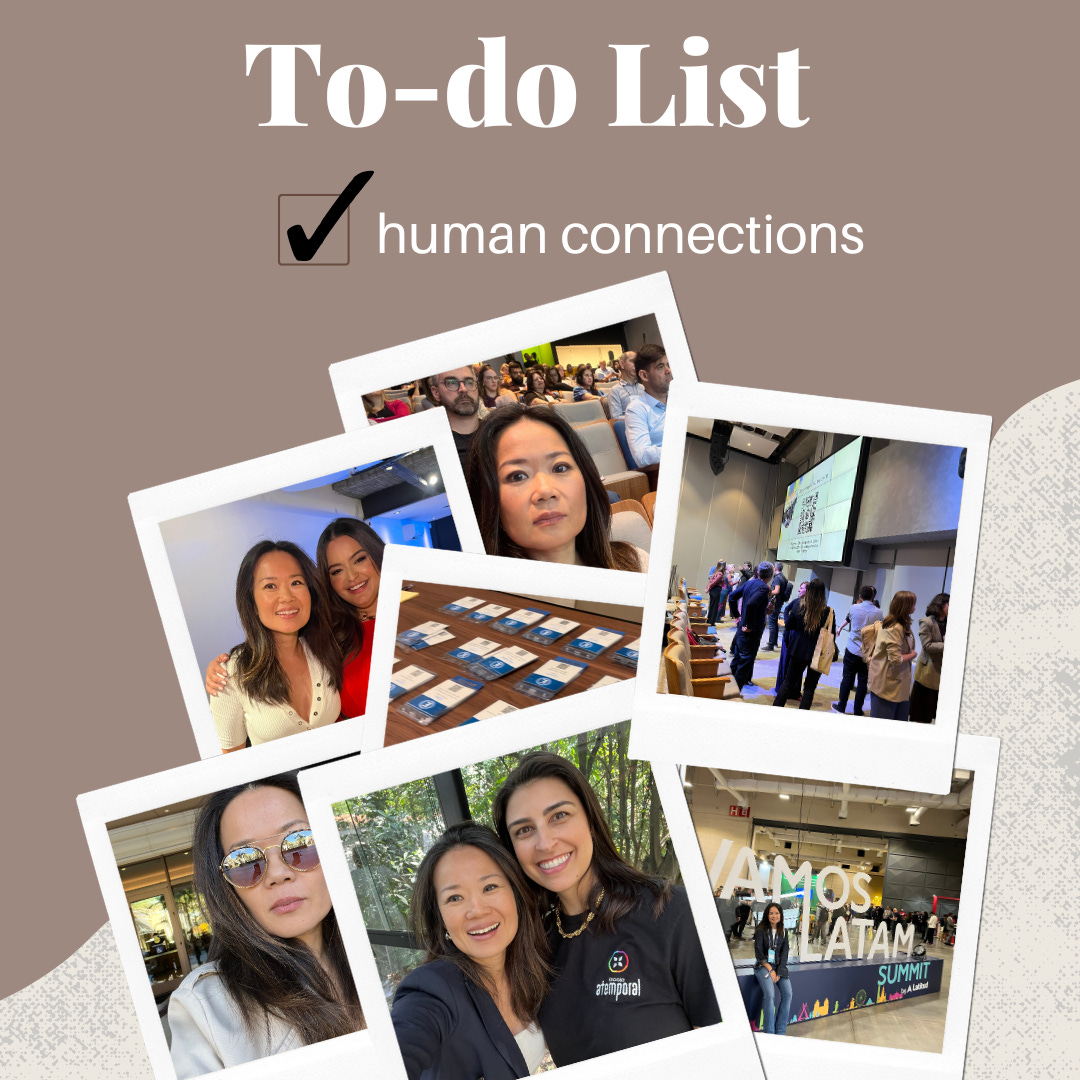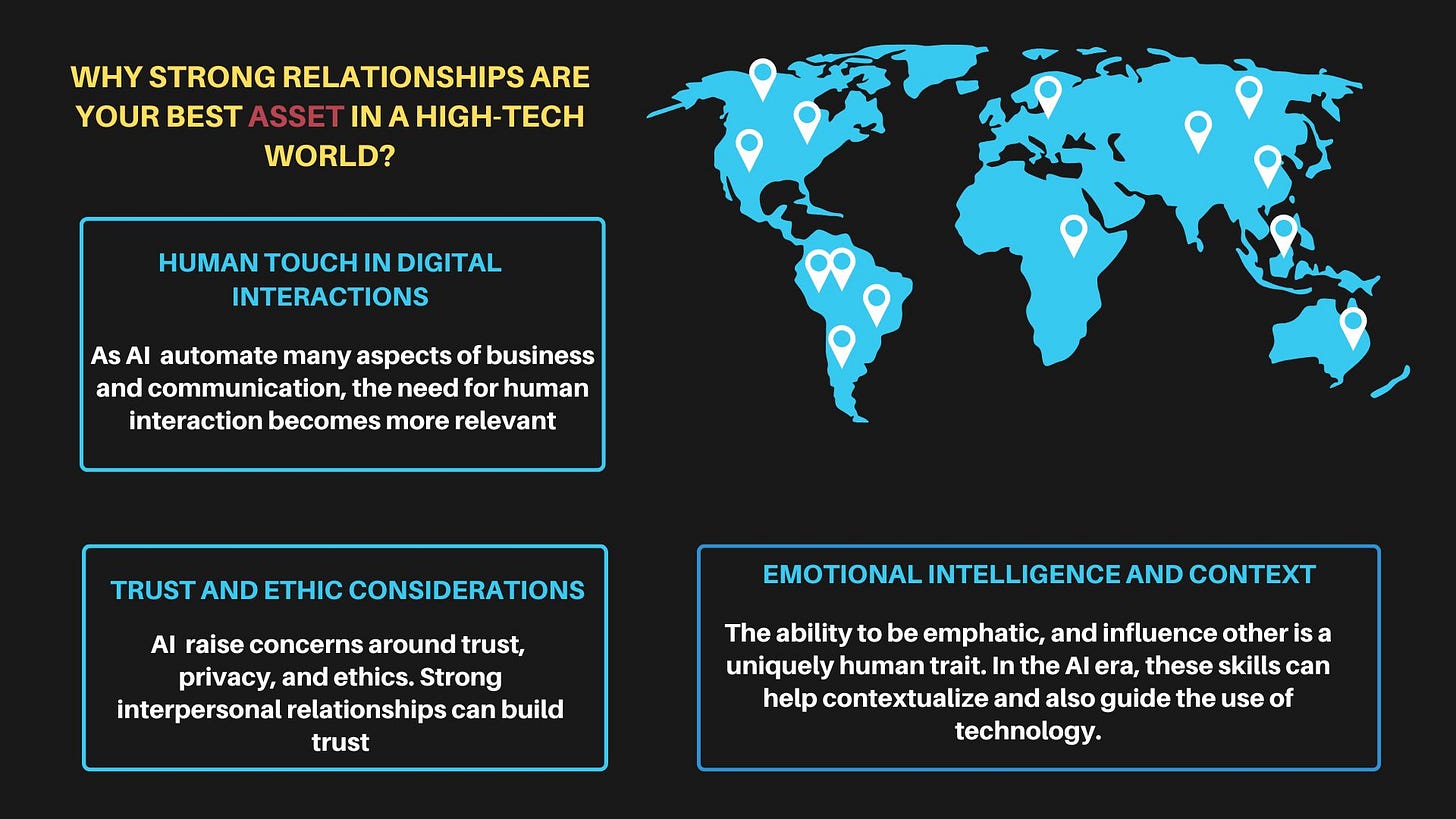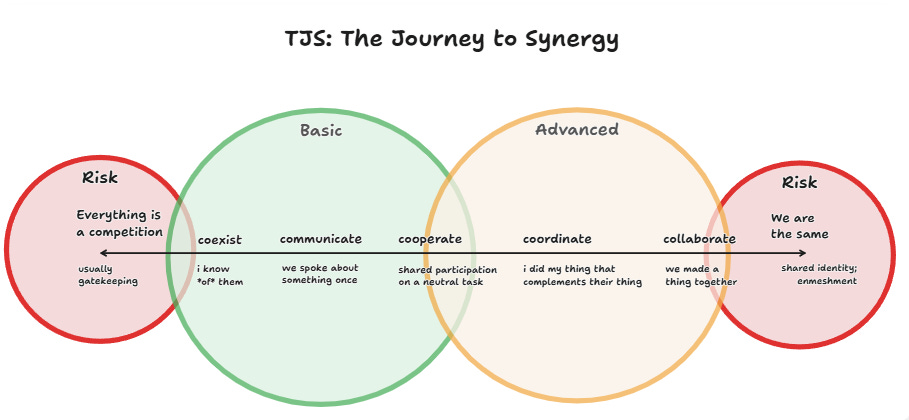Why Building Human Connections Should Be On Your To-do List
As relationships become more impersonal with the rise of automation, your network is one of your most valuable asset
I believe that as relationships become more impersonal with the rise of automation, human connections are more valuable than ever. So, whether you're an introvert or an extrovert, is important to intentionally grow your network.
Building business relationships is more important than ever, and is hard to achieve success in your careers without doing so intentionally. Also, few people recommend others if they have never met in person first, unless they have previously worked together online and built trust.
I feel that I've missed some opportunities to engage with different people, even when I attended conferences. Indeed, while some conversations can be draining, others can be invigorating and profoundly impact our lives in a positive way.
In this post, I'll share why building a valuable network can shape your career, along with some tips to strengthen them. Writing helps me organize my thoughts and reflect on my journey. As I put my ideas into words, I realize what I need to focus on, improve, or change. So, I’m sharing what I need to do as well.
If you have something to add, please do it - you never know who you might inspire next!
1. Why Your Network is a Valuable Asset
The importance of building relationships is rising in the AI era for several reasons:
1. Human Touch in Digital Interactions
As AI technologies automate many aspects of business and communication, the need for human interaction becomes more pronounced. People still value the personal touch, empathy, and understanding that only human interactions can provide.
2. Trust and Ethical Considerations
AI systems, raise concerns around trust, privacy, and ethics. Strong interpersonal relationships can help build trust and provide a framework for addressing these concerns.
3. Navigating Change
The AI era is marked by rapid technological changes affecting industries and job roles. Strong professional networks can help to navigate these changes more effectively by providing support, information, and opportunities
4. AI Interpretation and Integration
While AI can analyze data and provide insights, interpreting these insights often requires human judgment. Building relationships within and across teams ensures that there is a continuous exchange of knowledge and a deep understanding of how AI-generated information can be best applied to business strategies.
5. Emotional Intelligence and context
The ability to understand, empathize with, and influence others remains a uniquely human trait. In the AI era, these skills can help contextualize and guide the use of technology.
6. Resilience and Adaptability
Strong relationships contribute to organizational resilience and adaptability, helping businesses respond to challenges and seize opportunities. In an era where AI can lead to significant disruptions, having a robust network provides a safety net and a source of strength.
7. Some global trends are reshaping the way we work
Shrinking Organisations: tasks become more automated, flexible contracts replace traditional jobs. As organisations can source work more broadly, they will need less employees.
The rise of Gig economy: from independent groups of freelancers, to agencies, Guilds, work-matching platforms, the nature of work will shift, with less emphasis on traditional, formal jobs. Companies no longer need to confine their hiring to specific geographies. Instead, they can access a global talent pool. The gig economy is expected to keep growing in 2025, as more professionals seek flexibility and autonomy in their careers. As of January 2025, nearly 40% of the U.S. workforce participates in some form of gig work, whether as independent contractors, freelancers, or short-term workers.
Multiple Job Holders: Data from the U.S. Bureau of Labor Statistics indicate that as of November 2024, approximately 5.4% of the workforce, or 8.7 million Americans, were holding multiple jobs, influenced by factors such as inflation, hybrid work models, and generational preferences.
The next decade will be defined by cross-border collaboration and the strategic deployment of global talent, according to World Economic Forum.
In 2023, over 2.2 million remote workers from Brazil, Argentina and Mexico contributed to global companies, while staying in their home countries.The COVID-19 pandemic accelerated the adoption of remote work, breaking geographic barriers and creating a global talent marketplace.
In 2024, we’ve seen an acceleration of the trend of new job requisitions to be first considered for lower costs locations outside of the home country.
As the dynamics of the labor force change with automation and various contract types, whether you are a professional in a global company, a service provider, or an entrepreneur, you will likely interact with a greater number of people from different countries. Additionally, as companies operate with fewer employees, there will be a shift from traditional employment to service provision, leading to increased competition. Therefore, having a strong network where you are well-regarded can make a significant difference in achieving success in your career.
2. The Journey to Synergy Collaboration Model
source: Tejas Kumar blog
In this post about “How to grow professional relationships”, Tejas Kumar explains the seven states of professional relationships, moving from a competitive, zero-sum mindset to one of shared identity. Here you can find some highlights:
Everything is a competition
Coexist: parties acknowledge each other’s existence but maintain minimal interaction, summarized as “I know of them, but we don’t really talk”
Communicate: basic information exchange occurs, where either party would describe the other as “we spoke about something once” but the relationship doesn’t progress much further for similar reasons as above.
Cooperate: parties participate in a neutral task together, where they’re both contributing to the same goal. The stakes are usually low, and the relationship is still mostly transactional.
Coordinate: at this stage, one or both parties take deliberate steps to coordinate their actions toward a goal that belongs to one of the parties.
Collaborate: something beautiful happens when two or more people repeatedly execute successful coordinated efforts: there is a common recognition of high-quality synergy; that together, they are greater than the sum of their parts and they can continually share joy in their work. Collaboration is not when people coordinate efforts on building separate things that are complementary, but instead when they build the same thing together.
We are the same: the final state represents a shared identity, which is not a positive state. Keeping with the old adage of “too much of a good thing is a bad thing”, this is a state where parties are co-dependent and enmeshed, where one or more members unhealthily depend on the other. There is a dissolution of individuality, a loss of identity and boundaries: this is a toxic state.
2. Actions to Grow Your Network
Here are some practical tips that can help you:
Join local and global communities: Participate in groups that align with your professional interests to gain diverse perspectives and connections.
Write a newsletter: I started writing the newsletter without much expectation and I don't think it's one of my superpower. However, it has unexpectedly boosted my visibility, expanded my connections, and resulted in several requests for career mentoring and recruitment consultations.
Regularly send connection requests on LinkedIn: The platform allows you to send 100-200 connection requests each week.
Engage with contents on LinkedIn: Actively comment on, share, and post relevant content to stay visible and engaged within your professional network.
Attend in-person events: Make a point to be present at industry conferences and networking events to strengthen relationships and meet new contacts face-to-face.
7 tips for getting the most out of recruitments industry events in 2025: These great tips from
are useful for all kind of industry event, specially if you believe that in person meetings are the best way to grow your network in a meaningful and sustainable way.
Build relationships, understand the nuances of contingent hiring, including contract negotiation, compliance with local labor laws, and project-based compensation structures will be important in this chaotic scenario where trust can definitely open the doors.
I would be glad if we met at a conference in the future and you shared how this article had an impact you.🤩
Recommend Hiring in LAtAm to your readers.
The most relevant insights and updates about the Latin American workforce, designed for foreign companies looking to hire in the region.
Connect with me on LinkedIn
Thanks for reading!
Juliana.






Great insights and quality data, Juliana! Thanks for sharing